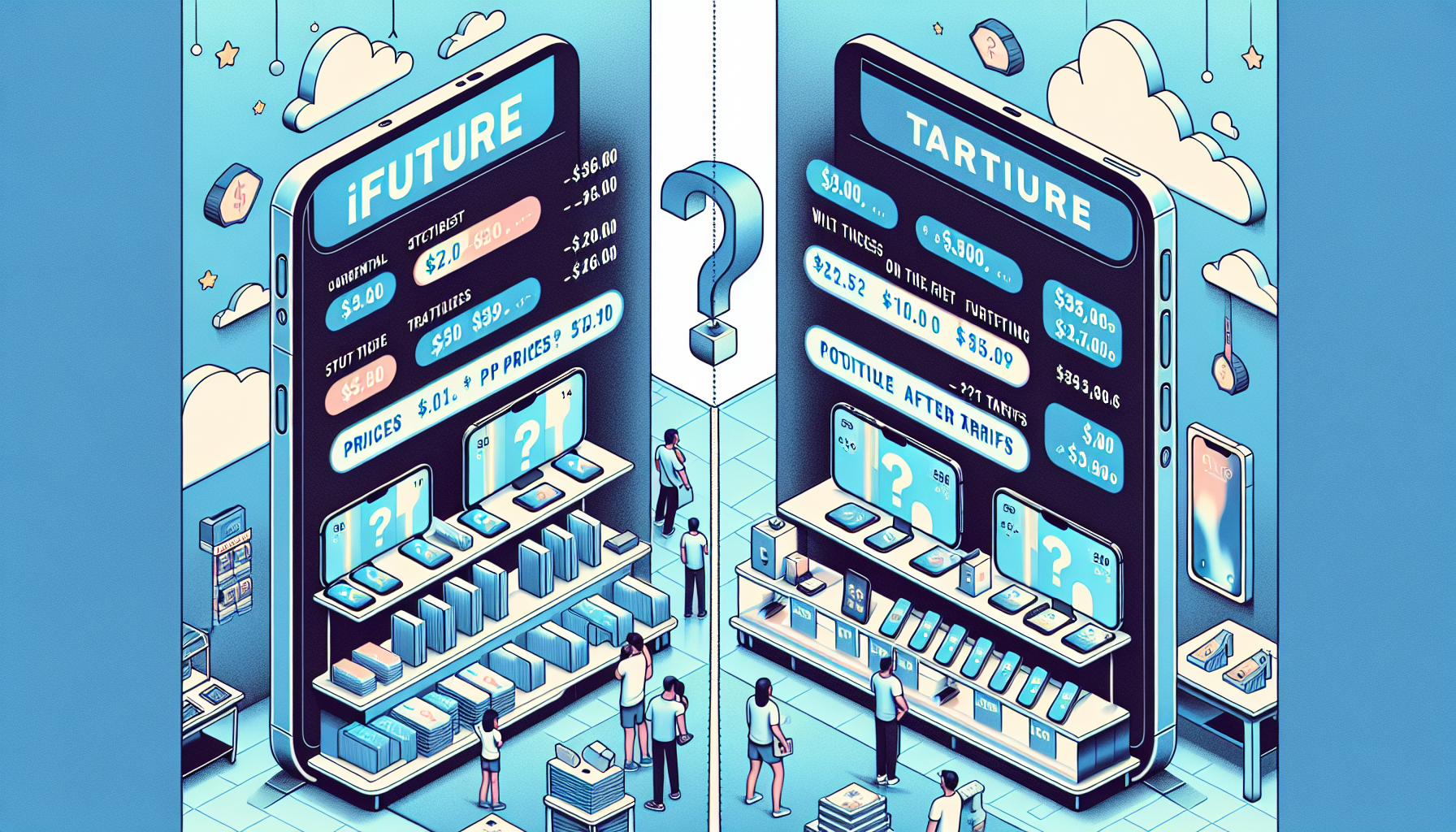How Upcoming U.S. Tariffs Might Influence iPhone Prices: Essential Insights Before Making a Purchase
With the U.S. administration set to launch a new round of tariffs aimed at Chinese imports, buyers are eager to learn how this will affect the pricing of consumer electronics—particularly iPhones. If you’re considering the forthcoming iPhone 16 or iPhone 17, now could be an optimal time to finalize your purchase. But what drives this urgency, and how might Apple react to these geopolitical changes? Let’s analyze the situation.
Why Tariffs Are Causing a Buying Frenzy for iPhones
Tariffs and Their Effects on Consumer Electronics
The U.S. government plans to implement tariffs as high as 54% on goods produced in China, including smartphones. Given that a majority of iPhones are still manufactured in China, this could lead to a considerable spike in the prices of upcoming models. These tariffs are part of a larger strategy to decrease dependence on Chinese production and promote manufacturing in the U.S. or allied nations.
Consumer Buying Frenzy: Surge in iPhone Sales
Recently, Apple retail outlets in major U.S. urban areas have experienced a notable increase in customer traffic and sales that mirror Black Friday or holiday shopping season patterns. Sales staff report that nearly every shopper is inquiring, “Are prices about to rise?” This atmosphere of urgency has triggered a mini-buying spree, despite the absence of official price hikes.
Anticipated Price Hikes: What Could iPhones Cost?
Could the iPhone 17 Exceed $2,000?
Speculation indicates that top-tier models of Apple’s forthcoming iPhone 17 could reach prices up to $2,300 if the full impact of tariffs is passed onto consumers. While Apple hasn’t verified any price adjustments, the company may soon face tough choices—either absorb the extra costs, affecting its profit margins, or raise retail prices.
Apple’s Previous Response to Tariff Impacts
This wouldn’t be Apple’s first encounter with tariffs during a Trump administration. Previously, the company effectively navigated potential disruptions by lobbying for exemptions or adjusting its supply chain strategically. CEO Tim Cook even met with former President Trump to address the trade implications for Apple products.
How Apple Is Strategically Responding to the Tariff Environment
Relocating Production to India
Apple has been increasingly committing resources to establish production facilities in India, which serves both economic and political purposes. By expanding manufacturing outside of China, Apple can lessen the impact of U.S.-China trade tensions and diversify its production capabilities. Foxconn, a significant supplier for Apple, has begun large-scale iPhone production in India.
Tim Cook’s Diplomatic Approach
Reports suggest that Apple isn’t planning an immediate large-scale production shift, as the tariff situation continues to evolve. Nonetheless, CEO Tim Cook may seek to negotiate tariff exemptions for Apple products, similar to his past initiatives. If successful, this could postpone or avert increases in prices for U.S. consumers.
Should You Purchase an iPhone Now or Wait?
Short-Term Availability May Stabilize Prices
Apple reportedly has sufficient stock of existing iPhone models to avoid immediate price hikes. Thus, if you’re contemplating acquiring an iPhone 16, you might still find it at its current price for a while longer. However, subsequent models—like the iPhone 17—are likely to feel the effects of the tariffs unless a resolution is achieved.
When Demand Exceeds Supply
If consumer panic persists, stock levels could decline, particularly for popular configurations and colors. This trend could result in shortages and even third-party price gouging. Purchasing now guarantees both availability and a lower price.
Implications for Other Apple Products
AirPods and Additional Accessories
Apple’s AirPods and other accessories, many of which are also produced in China, may be subjected to the same tariffs. While these products are generally less costly than iPhones, percentage-based price increases could still be substantial, especially for premium versions such as the AirPods Pro.
Effect on the Wider Tech Landscape
The effects of tariffs will not be limited to Apple. Other tech firms that heavily rely on Chinese manufacturing—such as Dell, HP, and Microsoft—might also raise prices or explore alternative production options. This could trigger a general increase in electronic prices across the industry.
Conclusion
The impending U.S. tariffs on Chinese imports represent more than mere political maneuvering—they’re already impacting buyer behavior and could result in lasting ramifications for the tech sector. Currently, Apple seems strategically equipped to manage the challenges, aided by its diversified supply chain and robust inventory. However, if you’re considering the purchase of a new iPhone, smartwatch, or a set of AirPods, taking action sooner rather than later could help you save money and secure peace of mind.
FAQ: Clarifying Your Queries About Tariffs and iPhone Pricing
Q1: Will the tariffs definitively raise iPhone prices?
A1: While nothing is official, it’s highly probable that the pricing for future iPhone models will increase if tariffs are enacted. Apple may cover some of the expenses, but not all.
Q2: Is it a good time to purchase an iPhone?
A2: Absolutely. With possible price increases on the horizon combined with normal pricing on current inventory, now is a strategically sound moment to buy.
Q3: Are other Apple products impacted by the tariffs?
A3: Yes. Items like AirPods and Apple Watches, which are also assembled in China, may face similar impacts.
Q4: Can Apple completely evade the tariffs?
A4: It’s feasible. Apple may negotiate exemptions or continue moving production to nations like India to sidestep tariffs.
Q5: Will the iPhone 17 be pricier than the iPhone 16?
A5: If tariffs are applied, the iPhone 17 could indeed be considerably more expensive—reports indicate amounts up to $2,300 for premium versions.
Q6: Are Bluetooth speakers affected by tariffs?
A6: Yes, many Bluetooth speakers manufactured in China could also see price increases due to these tariffs.
Q7: How is Apple preparing for these changes?
A7: Apple is diversifying its supply chain by expanding production in India and may also pursue diplomatic avenues to mitigate the financial effects of tariffs.